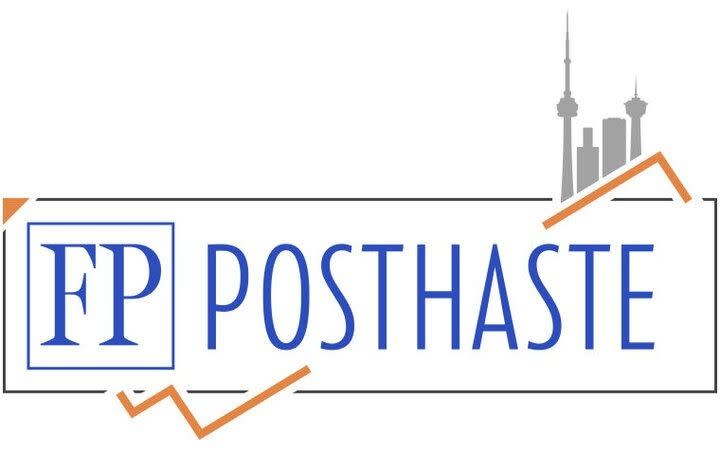Posthaste: Money remains Canadians' top stressor for sixth year in a row


Canadians are losing even more sleep over money this year than last as it remains their leading source of stress for the sixth consecutive year, according to FP Canada’s 2023 Financial Stress Index.
The not-for-profit organization, which interviewed 2,004 Canadians, said people are more worried about money (40 per cent) than their personal health (23 per cent), relationships (17 per cent) or work (16 per cent).
“Canadians continue to struggle with their financial picture, and financial stress can have a significant impact not only on financial well-being, but also on mental health,” Tashia Batstone, chief executive of FP Canada, said in a press release.
Overall, financial stress had a negative impact on more than half the population, and 36 per cent experienced mental health challenges such as anxiety or depression because of it. It’s no surprise then that more people are losing sleep over their finances this year (48 per cent) than last year (43 per cent).
“The current economic challenges have heightened Canadians’ sensitivities surrounding their personal finances,” Meghan MacPherson, a financial planner at Impact Financial Group Inc., said in the release.
Rising inflation has remained a key contributor to people’s financial stress because they’re struggling to afford groceries, gas and other goods and services. Nearly half of Canadians have less disposable income compared to last year, which is a substantial increase from the 39 per cent who said the same thing in 2022.
Many have taken steps to reduce their financial stress by tracking expenses (44 per cent), paying down debt (36 per cent) and saving more (34 per cent).
Yet roughly a third are still struggling to save money for retirement or make major purchases, with younger generations more likely to feel the pinch.
“The FP Canada Financial Stress Index clearly shows the toll that external factors can take not only on our wallets, but also our overall well-being,” Alim Dhanji, a financial planner at Assante Financial Management Ltd., said in the release.
But those who are worried they don’t have enough could make some extra cash through their unwanted items. On average, Canadians have an estimated $571 worth of unwanted items stored around their homes that are ripe for resale, according to a separate study by PayPal Holdings Inc.
The Resale Renaissance Report, which polled 2,000 people, said the second-hand economy is currently experiencing a boom. Indeed, the average Canadian has made $167, with an average profit of $31 per sale, in the past 12 months from reselling.
Half of those polled said that selling items they no longer need has been a good way to supplement their primary source of income. And 73 per cent are purchasing pre-loved items themselves to make their money go further, with clothes (38 per cent), books (21 per cent) and furniture (20 per cent) topping their thrift shopping lists.
“With prices soaring, it’s no surprise we’re seeing a boom in the second-hand economy,” Malini Mitra, director of communications, PayPal Canada, said in a press release.
_____________________________________________________________
Was this newsletter forwarded to you? Sign up here to get it delivered to your inbox.
_____________________________________________________________

The worldwide boom in generative artificial intelligence will usher in an age of accelerated productivity and greater prosperity for some — and profound disruption for others, primarily knowledge workers, according to a new report by consultants McKinsey & Co. Whole swaths of business activity, from sales and marketing to customer operations, are set to become more embedded in software — with potential economic benefits of as much as US$4.4 trillion, about 4.4 per cent of the world economy’s output — according to the study by McKinsey’s research arm. — Bloomberg
___________________________________________________
Today’s data: Canadian wholesale trade, international securities transactions. On tap in the United States: University of Michigan consumer sentiment index
Earnings: Canaccord Genuity Group Inc.
___________________________________________________

_______________________________________________________
Bank of Canada has 18 months to rein in inflation or risk a ’70s rerun, warns David Dodge
For sale: The unremarkable yellow house behind billionaire Jimmy Pattison’s empire
Private credit refinancing shows concerns about sector overblown: Ninepoint co-CEO
Canada’s average home price rises year over year, marking turning point in market
____________________________________________________
Employees are extremely limited in the types of expenses they can deduct for tax purposes and the rules are particularly tricky if you’re deducting a salary or other fees paid to an assistant. As a recent case demonstrates, the Canada Revenue Agency may decide to take a closer look at your employment expense deduction when the “assistant” you happen to hire is your spouse, partner or other family member. Here’s tax expert Jamie Golombek‘s take on the case.
8 steps your new graduate can take to set up a debt-free future
Looking for the right strategy to draw down retirement income
____________________________________________________
Today’s Posthaste was written by Noella Ovid, with additional reporting from The Canadian Press, Thomson Reuters and Bloomberg.
Have a story idea, pitch, embargoed report, or a suggestion for this newsletter? Email us at posthaste@postmedia.com, or hit reply to send us a note.
Listen to Down to Business for in-depth discussions and insights into the latest in Canadian business, available wherever you get your podcasts. Check out the latest episode below:

 Yahoo Finance
Yahoo Finance 




